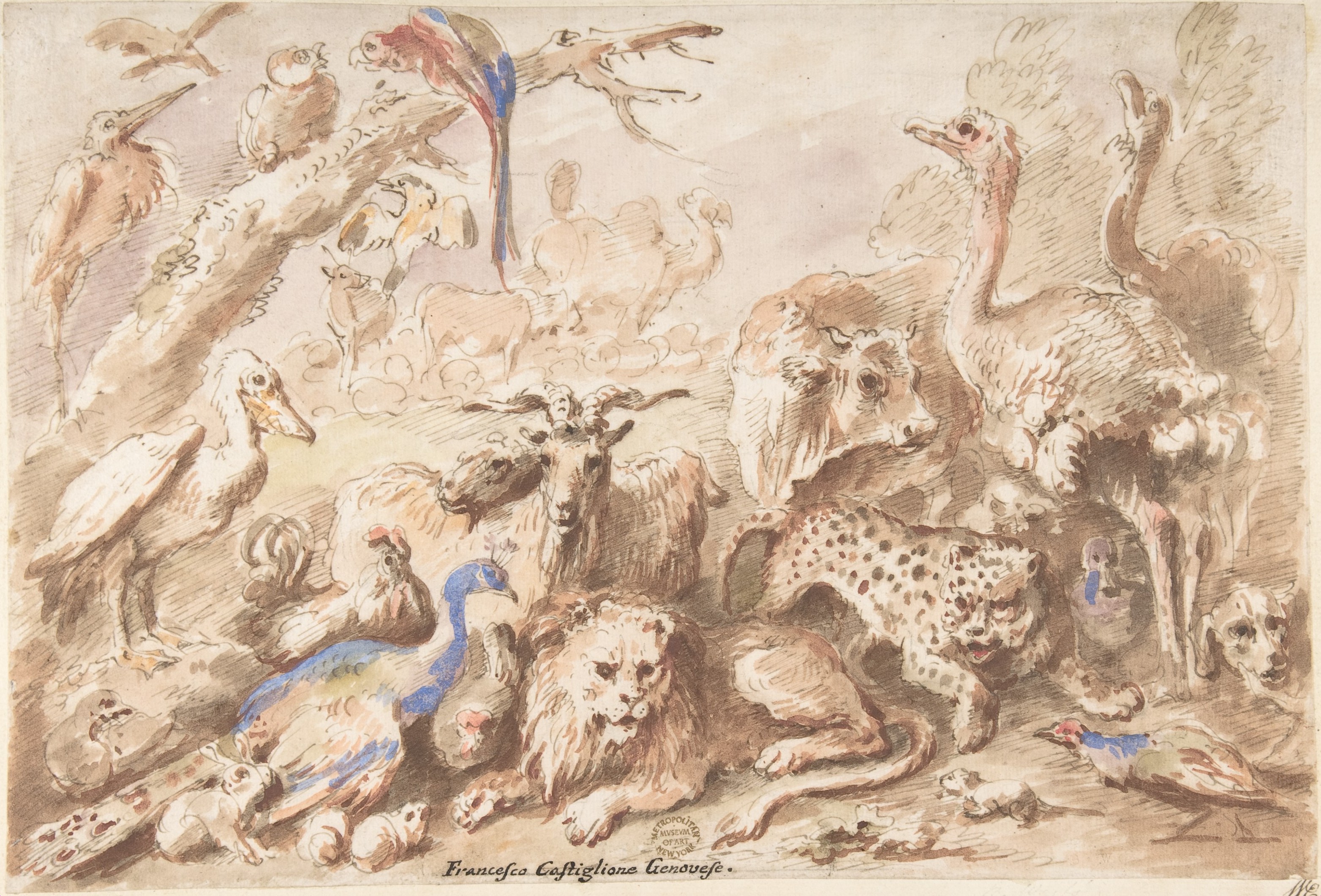
“Everyone is a genius. But if you judge a fish by its ability to climb a tree, it will live its whole life believing that it is stupid.”
This quotation alludes to a long-standing allegorical framework. It is inappropriate to judge an animal by focusing on a skill which the creature does not possess. A fish is specialised to swim superbly, and its ability to climb a tree is non-existent or rudimentary. In the domain of education this allegory has been employed repeatedly for more than one hundred years. Hence, this quotation is built on ideas that have been in circulation among educators for many decades.
A long time ago, when the animal creation was being differentiated into swimmers, climbers, fliers, and runners, there was a school for the development of the animals.
The theory of the school was that the best animals should be able to do one thing as well as another; and if there was an apparent aptitude in a given animal for doing one thing and an apparent inaptitude for doing other things, the time and effort should be spent upon the latter instead of the former.
If one had short legs and good wings, the attention should be given to running so as to even up the qualities as far as possible. So the duck was kept waddling instead of swimming, the pelican was kept wagging his short wings in the attempt to fly. The eagle was made to run and allowed to fly only for recreation, while maturing tadpoles were unmercifully guyed for being neither one thing nor another.
All this in the name of Education.
Nature was not to be trusted in her make up of individuals, for individuals should be symmetrically developed and similar for their own welfare as well as for the welfare of the community.
The animals that would not submit to such training, but persisted in developing the best gifts they had, were dishonoured, called narrow-minded and specialists, and special difficulties were placed in their way when they attempted to ignore the theory of education recognised by the school.
No one was allowed to graduate from that school unless he could climb, swim, run, and fly at a certain prescribed rate.
In 1903 a newspaper in Illinois published a fable called “Jungle School Board” with animals in a scholastic setting, but the emphasis was different. The creatures were unable to construct a joint curriculum: 1 1903 April 29, The Illinois State Journal, For Women and Children: Jungle School Board, Quote Page 4, Springfield, Illinois. (GenealogyBank) ↩
When the animals decided to establish schools they selected a school board consisting of Mr. Elephant, Mr. Kangaroo and Mr. Monkey, and these fellows held a meeting to agree upon their plans.
“What shall the animals’ children be taught in the animal school? That is the question,” declared Mr. Monkey.
“Yes, that is the question,” exclaimed Mr. Kangaroo and Mr. Elephant together.
“They should be taught to climb trees,” said the monkey, positively. “All my relatives will serve as teachers.”
“No, indeed!” shouted the other two, in chorus. “That would never do.”
“They should he taught to jump,” cried the kangaroo, with emphasis. “All of my relatives will be glad to teach them.”
“No, indeed!” yelled the other two, in unison. “That would never do.”
“They should be taught to look wise,” said the elephant. “And all of my relatives will act as teachers.”
“No, indeed!” howled the other two together. “That will never do.”
“Well, what will do?” they asked, as they looked at each other in perplexity.
“Teach them to climb,” said Mr. Monkey.
“Teach them to jump,” said Mr. Kangaroo.
“Teach them to look wise,” said Mr. Elephant.
And so it was that none of them would yield, and when they saw there was no chance to agree, they all became angry and decided not to have any animal schools at all.
By the 1940s some significant alterations to the tale had been made, e.g., a squirrel had been added. Also, the name of the original author, Dolbear, apparently had been lost.
The following instance was published in the Boston Herald in May 1946: 2 1946 May 4, Boston Herald, This and That In Bill’s Book by Bill Cunningham, Quote Page 6, Column 1, Boston, Massachusetts. (In the original text some animal names were capitalised and some were not. Here we uniformly capitalise animal names. Also, paragraphs were added for readability) (GenealogyBank) ↩
The following treatise upon the higher education comes to me by way of an MIT professor, but whether the authorship is his, I don’t know. It says:
“One time the animals had a school. The curriculum consisted of running climbing, flying and swimming, and all the animals took all the subjects.
The Duck was good in swimming—better, in fact, than his instructor—and he made passing grades in flying, but he was practically hopeless in running.
Because he was low in this subject, he was made to stay after school and drop his swimming class in order to practice running. He kept this up until he was only average in swimming, but average was passing so nobody worried about that except the duck.
The Eagle was considered a problem pupil and was disciplined severely. He beat all others to the top of the tree in the climbing class, but he always used his own way of getting there.
The Rabbit started at the top of the class in running, but he had a nervous breakdown and had to drop out of school on account of so much make-up work in swimming.
The Squirrel led the climbing class, but his flying teacher made him start his flying from the ground up instead of from the top down, and he developed charley horses from overexertion at the takeoff and began getting C’s in climbing and D’s in running.
The practical Prairie Dogs apprenticed their offspring to the Badgers when the school authorities refused to add digging to the curriculum.
At the end of the year, an abnormal Eel that could swim well and run, climb and fly a little was made Valedictorian.”
The central point of the fables is that each individual should be allowed to pursue his or her strengths; in addition, a weakness in some area should not induce feelings of debilitating inferiority.
“Everybody is a genius. But if you judge a fish by its ability to climb a tree, it will live its whole life believing that it is stupid.”
Excerpt: https://quoteinvestigator.com/2013/04/06/
Picture: Public Domain: A Congress of Animals
- Artist: Giovanni Francesco Castiglione (Italian, Genoa 1641–1710 Genoa)















Leave a Reply